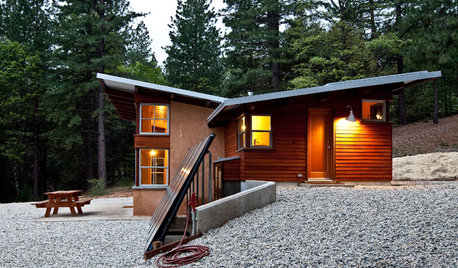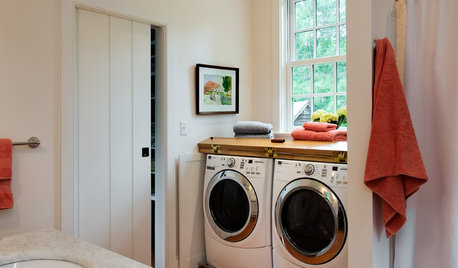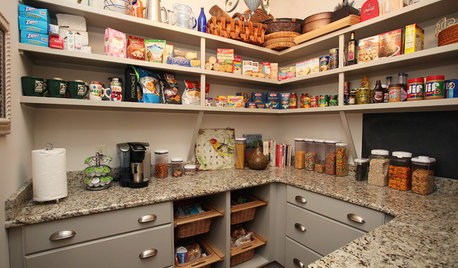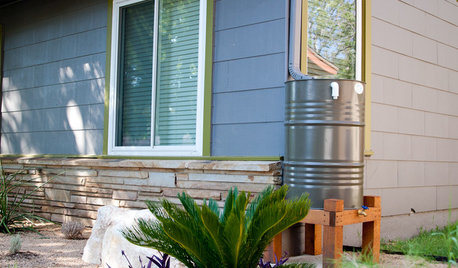Electric Hot Water Heater Monthly Kilowatt usage
mrmichaeljmoore
15 years ago
Related Stories

GREAT HOME PROJECTSHow to Add a Solar Water Heater
Lower energy bills without a major renovation by putting the sun to work heating your home’s water
Full Story
GREAT HOME PROJECTSHow to Switch to a Tankless Water Heater
New project for a new year: Swap your conventional heater for an energy-saving model — and don’t be fooled by misinformation
Full Story
FEEL-GOOD HOMESimple Pleasures: 10 Ideas for a Buy-Less Month
Save money without feeling pinched by taking advantage of free resources and your own ingenuity
Full Story
SAVING WATER11 Ways to Save Water at Home
Whether you live in a drought-stricken area or just want to help preserve a precious resource, here are things you can do to use less water
Full Story
GREEN BUILDINGWater Sense for Big Savings
Keep dollars in your pocket and preserve a precious resource with these easy DIY strategies
Full Story
BASEMENTSThe Hot List: Beautified Basements
Nab function and styling ideas from the most popular basement photos on Houzz so far this year
Full Story
FIREPLACES12 Hot Ideas for Fireplace Facing
From traditional brick to industrial steel, there’s a fireplace cladding here to light up your design
Full Story
LIFEThe Top 5 Ways to Save Water at Home
Get on the fast track to preserving a valuable resource and saving money too with these smart, effective strategies
Full Story
LIFEHow to Prepare for and Live With a Power Outage
When electricity loss puts food, water and heat in jeopardy, don't be in the dark about how to stay as safe and comfortable as possible
Full Story
GREEN DECORATINGEasy Green: Big and Small Ways to Be More Water-Wise at Home
These 20 tips can help us all make the best use of a precious resource. How do you save water in summer?
Full StorySponsored
Central Ohio's Trusted Home Remodeler Specializing in Kitchens & Baths
More Discussions







maryland_irisman
zl700
Related Professionals
Springdale Handyman · North New Hyde Park Handyman · Boca Raton Kitchen & Bathroom Remodelers · Chicago Ridge Kitchen & Bathroom Remodelers · Idaho Falls Kitchen & Bathroom Remodelers · Luling Kitchen & Bathroom Remodelers · Oceanside Kitchen & Bathroom Remodelers · Omaha Kitchen & Bathroom Remodelers · Pico Rivera Kitchen & Bathroom Remodelers · Rolling Hills Estates Kitchen & Bathroom Remodelers · Saint Helens Kitchen & Bathroom Remodelers · Shawnee Kitchen & Bathroom Remodelers · Sioux Falls Kitchen & Bathroom Remodelers · Tulsa Kitchen & Bathroom Remodelers · North Chicago Kitchen & Bathroom Remodelersjakethewonderdog
rjoh878646
dadoes
alphonse
davidro1
jake2007
mrmichaeljmooreOriginal Author
jakethewonderdog
mrmichaeljmooreOriginal Author
jakethewonderdog
brickeyee
mrmichaeljmooreOriginal Author
jake2007
brickeyee
jake2007
TA999999
William King